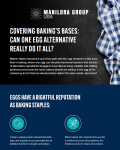The FoodNavigator Forum
How does sugar affect health? Find out at FoodNavigator’s Sugar Debate: Separating Fact from Fiction

We’ll be exploring some of the most topical questions about sugar:
- Does sugar have a special role in the obesity epidemic?
- Is sugar really addictive?
- Has ‘low-fat’ dietary advice spurred higher intake of sugars?
- Is it ever sensible to focus on one dietary component when it comes to health?
In this free-to-attend roundtable debate, FoodNavigator brings together global experts on the issue, to better understand whether sugar can, or should, play a role in a healthy diet.
WHO IS ON THE PANEL?
FoodNavigator brings together four global experts to debate the subject on March 31:
Robert Lustig
Paediatric endocrinologist
University of California San Francisco (UCSF)
John L. Sievenpiper
Resident physician, medical biochemistry
McMaster University
Graham MacGregor
Professor of cardiovascular medicine
Wolfson Institute of Preventive Medicine
Luc Tappy
Professor of physiology
University of Lausanne
We’ll also explore the nitty-gritty of fructose metabolism, whether removing sugar from foods could lead to unintended dietary consequences, and what the food industry is doing in light of recent research about sugars.

























